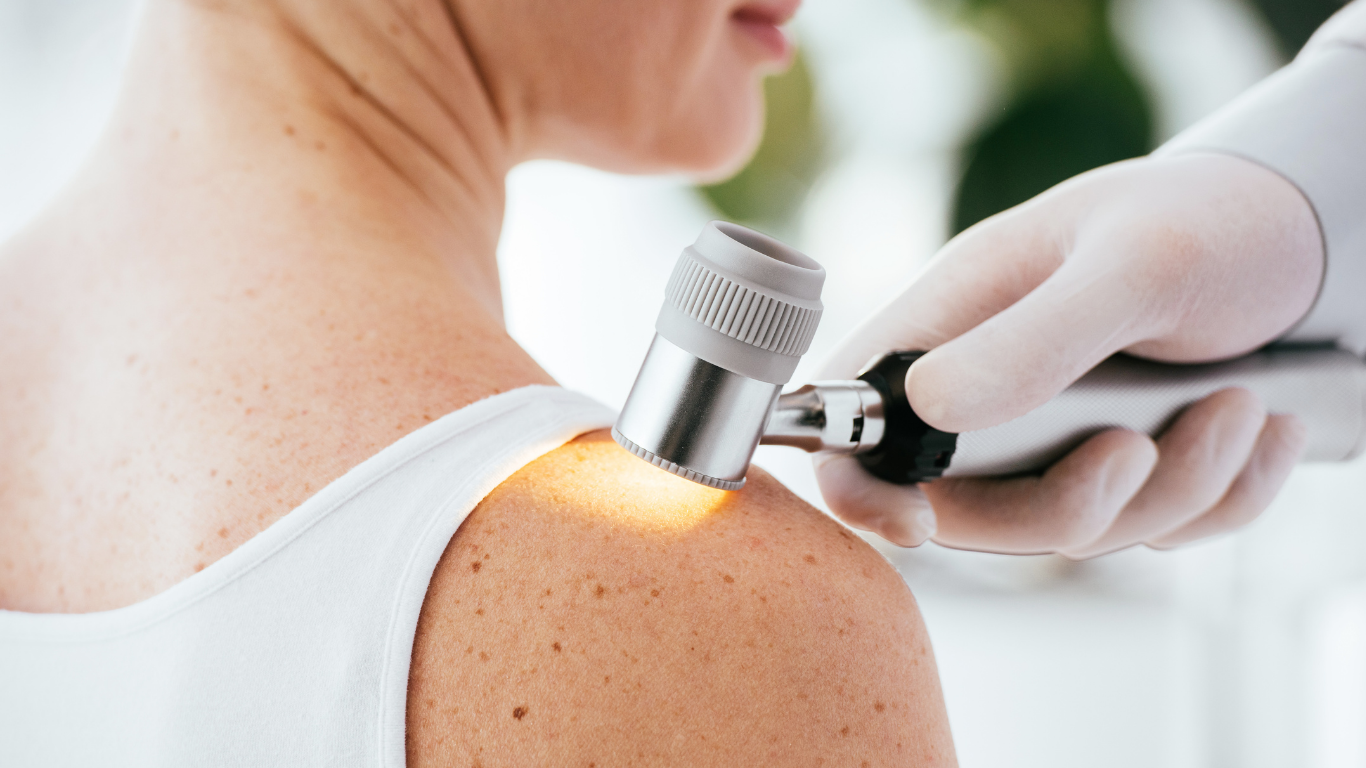When, Why, and How: Everything You Need to Know About Removing Skin Lesions
Skin lesions such as moles, warts, or birthmarks can cause concern or affect your quality of life. At Wyspa Medycyny Przyjaznej in Gdańsk, we offer professional diagnostics and removal of skin lesions, combining expertise with empathy. We explain how we diagnose lesions, when we use surgical excision, laser, or cryotherapy, and how to recognize dangerous changes, such as melanoma.
How Do We Diagnose Skin Lesions?
Diagnostics begin with a detailed medical history and clinical examination. Our specialists, including Andżelika Schwann-Majewska and Aleksandra Okuniewska, assess the lesion based on its shape, size, and history. The key tool is dermoscopy, which allows for a magnified analysis of the lesion’s structure. If needed, we perform a biopsy to collect tissue for histopathological examination. This is essential when we suspect malignant changes, such as melanoma.
What Is Melanoma and How to Recognize a Suspicious Lesion?
Melanoma is a dangerous skin cancer that can develop from an existing mole or appear as a new lesion. Early melanoma diagnosis increases the chances of successful treatment. We use the ABCDE rule:
- A (asymmetry) – uneven lesion.
- B (borders) – irregular, jagged edges.
- C (color) – multiple colors (black, brown, red).
- D (diameter) – lesion larger than 6 mm.
- E (evolution) – changes in appearance, itching, or bleeding.
If you notice these symptoms, contact us! Book an appointment and ease your concerns.
When Do We Excise, and When Do We Use Laser or Cryotherapy?
The choice of method depends on the type of lesion and diagnostic results. Learn more about procedures on our procedures page.
Surgical Excision
The gold standard for suspicious lesions, such as potential melanoma. Excision is necessary when a lesion grows, bleeds, or raises oncological concerns. It’s a routine procedure under local anesthesia, taking 15–30 minutes. The surgeon removes the lesion with a margin of healthy tissue, and the wound is closed with sutures. In rare cases, we use skin grafting for better aesthetic results.
Surgical removal of skin lesions in our clinic is performed by:
Laser Therapy
We use laser for benign lesions, such as warts or fibromas. It’s precise, minimally invasive, with a short recovery time. It’s not suitable for suspicious lesions, as it prevents histopathological examination. The procedure is performed under local anesthesia and is completely painless.
Cryotherapy
Freezing with liquid nitrogen is ideal for small, benign lesions, such as viral warts. The procedure is quick and painless, and the skin heals within a few days. It’s most commonly used on hands and feet to treat warts in children.
Why Don’t We Use Laser for Suspicious Lesions?
Suspicious lesions, such as potential melanoma, are not removed with laser because it destroys the tissue, making histopathological examination impossible. This examination confirms whether a lesion is malignant and guides treatment. Surgical excision ensures safety and accurate diagnosis.
What Does the Skin Lesion Excision Procedure Look Like?
The procedure is simple and routine for our surgeons:
- Local anesthesia – eliminates pain.
- Excision – the lesion is removed with a margin of healthy tissue.
- Sutures – the wound is closed, with sutures removed after 7–14 days.
- Histopathological examination – tissue analysis in a laboratory.
- Recovery – quick return to activities with proper wound care.
For large lesions, we use skin grafting to minimize scarring. Our specialists, like Dr. Dawid Śliwiński, perform procedures with precision and care.
Why Trust Our Clinic?
Melanoma is a serious condition, but with proper prevention and prompt action, it can be defeated. At Wyspa Medycyny Przyjaznej in Gdańsk, we offer comprehensive diagnostics and surgical oncology procedures for skin lesions. Our specialists, with decades of experience, combine precision with empathy, ensuring patient safety and comfort. From dermoscopy to surgical excision and histopathological examination, every step is meticulously handled to give you confidence that your health is in good hands.
Don’t delay prevention – melanoma doesn’t wait. If you have concerning moles or want to check your skin, book an appointment.
Meet our team: Wyspa Medycyny Przyjaznej Specialists
Learn more about procedures: Surgery and Dermatology
Book an appointment: ZnanyLekarz.pl

